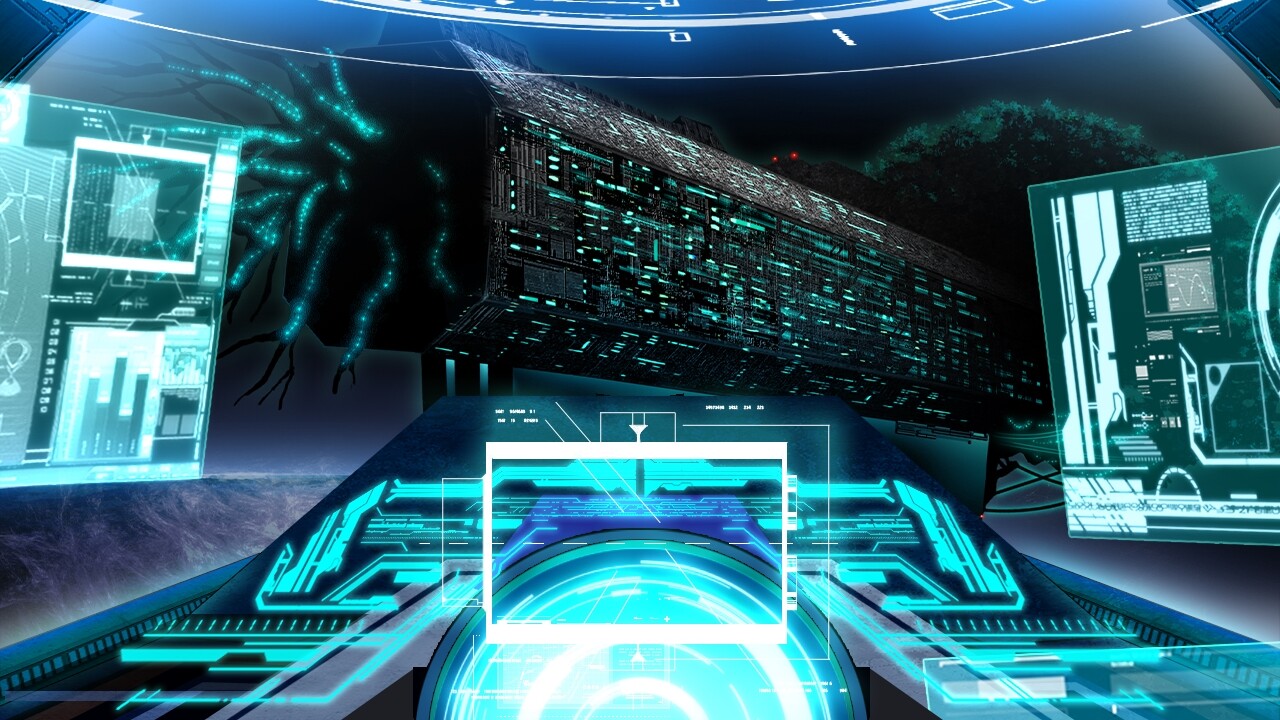Space Sci-fi – Genre Deep Dive
This is a condensed version of the full article which can be found on my Main Blog Here.
Breaking Through The Firmament
When looking up at the stars how can one not be filled with a sense of wonder? Since humans first stood upright we have told stories about what lies in the expanse above our heads. In the past this would have been the realm of gods and mythical creatures, but, now that people can reach it, the tales have shifted into the subject of today’s article, space sci-fi. These are narratives focus around futuristic societies with technology beyond are own who are capable of travelling easily from their planet to the void beyond. This can be anywhere from a more ground depiction of having these people only able to travel into orbit around their own planet to full blown faster than light travel across the galaxy. For visual novels this is not a particularly popular setting compared to the likes of the present day or high fantasy, but what there is has a unique flare to it that no other medium is quite capable of capturing. It is in visual novel’s tendency towards intimacy and introspection that we can find what makes these space sci-fi games such powerful experiences. Let’s count down to lift off and see how visual novels have adapted this imaginative space.
Just Above Our Heads
Choosing to embrace space sci-fi within a setting relatively technologically similar to our own, but just slightly further along provides some unique opportunities to engage with our present while still holding onto the captivating allure of the far future. By having a grounding in concepts familiar to the player, there is less of a need to constantly explain ideas than there would be in a setting in the more distant future and it can avoid a lot of bloat often caused through exposition. On top of this it can rely on our empathy for the known to build a connection between player and characters or strengthen the identity of the game and this is especially true if the story spends some of its time planetside surrounded by icons and imagery close to the present day. Visual novel’s intimacy also allows this familiarity to extend to the cultural conventions inherent in our present world and use this to compare and contrast with the forms of space travel avavilable for narrative purposes.
Where No Man Has Gone Before
If the game is already set in space, it might as well go the whole way and be set in a far future with faster than light spaceship and other advanced technology. This is the attitude many developers take and has resulted in this being the most common type of space sci-fi. There are many good reasons for choosing this approach, chief among them is how to fulfils the exploration and discovery fantasy born out of the space race by presenting the player with mysterious and wondrous new worlds. What a player uncovers does not need to be exclusively exotic planets for there can be strange cultures or just humans who are both friends and foes. The beauty of the unknown is that anything is possible and it also creates much needed tension within the narrative. Placed alongside a compelling cast of humans and the not so human and the result is often a roller-coaster ride as the characters and the player both come to terms with the emotions and trials this journey to the stars brings. Even the large amount of exposition this type of space sci-fi often bring is wielded as another avenue to explore and slowly come to understand what makes this universe tick.

For example take ALPHA-NIGHTHAWK which is a visual novel that fully takes advantage of out the concepts in space sci-fi to crank things up to the absurd. Here the player will find strange spaceships, flashy mecha and people with animal ears or full animal bodies. These choices lead to a world of surprises to keep the player entertained and it gives the game that sense of stepping into the unknown. In the Sunrider games we can see a more standard use of space sci-fi in the form of the starship captain fantasy. Rather than a simply being wondrous, space for Sunrider is a land of adventure where the brave step forward to prove themselves. Hence why these game focus around fighting and exploring the ruins of a once powerful ancient civilisation. This allows the games to leverage the space sci-fi tendency towards grand universe spanning concepts in a more human form as a lot of the mysteries involve the various people within the setting.
Explore Ourselves In Spaces Unknown
No matter the nature of space sci-fi visual novels, the spirit of exploring something unknown is always present within their narratives. This extends beyond the obvious exploration of the strange endless void of space and into ideas that examine the inner thoughts and motivations of its characters. In a place as alien as space what does it mean to be human? Its isolated nature allows visual novels to do what they do best and emphasise the connections between people on an intimate level by using it to create an intensity to the emotions of its cast as they struggle through the their problems without external help. There is an interesting design space opened by this interaction in the form of taking a society or ideal and pushing it to its extreme to examine what makes it tick as well as its flaws. Hate Plus shows us what focusing in on this idea can achieve as we get to see the fall of a vibrate culture in its isolated colony craft. There is no escape for the characters and they are confronted with the reality of what is happening which is made all the more personal to the player through how it effects Mute, their AI companion. Despite being only a series of text logs, its familiar ideas can be cleanly examined due to the distance provided by the space sci-fi setting since it can provide a contained area which is not a direct reflection of our own world in order to keep as much player bias out of the consideration as possible.

Conclusion
Beyond our blue sky is an endless black void perfect for all kinds of imaginative stories and visual novels know just how to take advantage of this space. It can deal with relatively low sci-fi settings where technology is only slightly better than our own in order to explore relevant issues in the modern world or to build an immediate connection to a place the player is familiar with. The opposite extreme of a high sci-fi setting and its almost fantastical spaceships provides a sense of wonder and exploration both of the universe but also the characters themselves. What visual novels bring to space sci-fi is their unique intimacy and capability to deal with complicated issues in a human manner without losing the distance from the real world provided by the genre. The resulting balance is an engaging take on one of the most imaginative spaces available for video games and it still has room to grow while delivering new masterful titles.



2 Comments
Recommended Comments